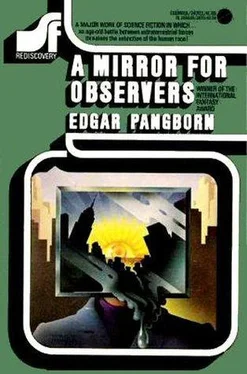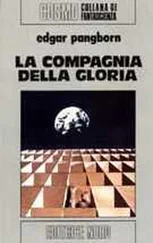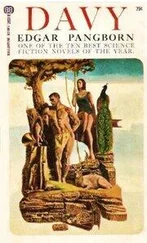Sharon said to no one in particular: “Methods?”
Miriam swung toward her at last. “I beg your pardon?”
“Interested in the methods used, for getting information from a poor crazy old man.”
It was war of course, and Sharon had chosen a moment when a little goading might sweep Miriam toward revealing hysteria. It didn’t quite work. Miriam stared, and sputtered, and turned back to Abraham. “Abe, if you can get your mind off your imaginative friends long enough to listen: we haven’t done a single thing that wasn’t justified by the emergency. A man like Hodding can’t be handled with gloves. I’m trying to tell you what he is. We found out.” Her voice was rising. “Never mind how — you’ve got that weak, soft streak — it doesn’t matter anyway. Abe, Hodding has been in the pay of China for the last three years.” I believe I laughed; Abraham didn’t. “He’s been using our American facilities to work up something to use in Asia. And fooling us with talk of abstract research, research that might have a humanitarian purpose — Max went for that, naturally — Max thought Hodding was working on a — a—”
Abraham had gone very white. He understood her hesitation too, I think. He said: “Is that going to be given to the press? Like that?”
“Certainly!” Miriam cried, and the high edge of hysteria was there. “Certainly, when we’re ready.”
Sharon cocked her head at her little stockinged feet and dropped them softly. She started to speak, but Abraham checked her. He said: “All you need now is a written confession from Hodding? Something like that?”
“We have it already,” she snapped.
“Then you don’t need me. Miriam, it stinks.”
She pressed her hand to her forehead with the pathos of weariness. “So you can’t see. Like a spoiled child. With a new toy too.” She studied Sharon with the same show of weariness, dazed indifference: “Just who are you, or aren’t I supposed to ask?”
“A junior member of the Federalist Party.”
“Oh. One of those. I might’ve known. And this cheap clumsy spy” — she looked me up and down; I let it ride — “what do you pay him, may one ask? Not that it matters. Well, Miss — Miss—”
“Brand. Sharon Brand.”
“Oh yes. Thought I’d seen your picture somewhere. You write children’s books or something, don’t you?”
Sharon chuckled. “Uh-huh. Nice big ones.”
“Well, you might tell your nigger boss in the Federalist Party that, as a spy, friend Meisel is a flop—”
“Oh, that tail you had on me this morning,” I said. “Wondered why he quit so easy. It was to phone you, wasn’t it? Let you know I was away from the apartment house or something?”
But she was ignoring me now. “Your own methods seem to have worked better, Miss — Brant? Must be hard on the heels, starting so young. My fault really, only I never would have thought Abe had a yen for children. Oh, here, you might want this when you’re of age.” She twisted off the ring and flung it clumsily. Except to twitch her feet aside so that the ring rolled under the armchair, Sharon didn’t look at it or move.
Even after yielding to that need for a gesture, Miriam must have held some frail hope of success, slow in dying. She approached Abraham with outstretched appealing hands. Though I had almost no doubt of the outcome, I found I was holding my breath. Miriam had talent.
It was not his distant quiet that broke her control. Something else; something I saw in him, and though I know he tried to hide it, Miriam must have seen it too. Pity. I heard her gasp, saw her make a savage unthinking motion toward her handbag. I saw Sharon jump up; if Miriam had completed the motion, I believe Sharon would have thrown herself in front of Abraham before he could stop her. But Miriam’s mind remembered where the gun was, more quickly than her hand. She choked and turned away, harmless and pitiful. “I’ll take — what you said, to Joe Max.” It was interesting to me that she said “Joe Max” just then. “Abe, you’re making a terrible mistake.”
I was glad that Abraham answered nothing. She went by me slowly, not looking at me, perhaps not even thinking about the gun, which I would not have returned to her. She didn’t slam the door.
Sharon’s arms were around Abraham, tight and close. “Will,” she said over her shoulder, “Will, is the sun by any chance over the yardarm, and I don’t mean on my account?”
New York Sunday night, March 12
Sharon went into the country with us today. A holiday, a half-impromptu picnic. Not an escape, unless Sharon may have thought of it that way, a little. Spring has come earlier than ever this year. There was some small rain last night, and today the earth was washed and sweet and ready; we found bright winter aconite in the woods, and the first of the tiny white violets that hide in corners of the rocks.
We rented a car, Abe and I, and rather than oblige us to grope through Brooklyn, Sharon met us at a subway exit uptown. We didn’t venture on a Robbie-road, but went over the old bridge and followed one of the fine North Jersey highways until we came on a modest road that promised to lead into the Ramapos. Just the three of us, and by unspoken consent we said not a word during the drive about what had happened or might have happened at the Green Tower Colony Friday afternoon.
It seems that in order to contemplate a major calamity to the human species you need distance. More than the Martian distance. When the black wings swoop too close your eyes blur; Martian or human, you must look away, not so much for the sake of hoping or pretending, but because your heart says: “I am not ready.” Or it says, perhaps: “There was no need of this. There could have been another way….” The pilot over Hiroshima — could he look down?
Certainly there was nothing in the spring woods to remind us of grief.
There had been no more approaches from Max’s people since Miriam’s visit. Abraham and I were not followed when we hunted up that rental garage. Nothing was prowling behind us when we took that little road off the highway. Sharon had brought a basket with lunch, and we had wine — good Catawba wine from somewhere in the smiling lake country.
I could turn my face away from the homely ugliness of our rented car; I could forget our stuffy American clothes and imagine that we were — no matter where. Perhaps a mountainous island in that country where once upon a time human life was a pleasant thing to explore — or so said Theocritus, Anacreon, other voices. Pan never died. He watches and breathes across the pipes, wherever earth and forest, field and sky can come together and make their harmony for the Arcadian son of Hermes.
Often enough, Drozma, I think of your great-grandfather, how he labored to collect and recopy the writings of his own greatgrandfather, who knew Hellas as it truly was, when the sun was high. Those writings could be published, if Union is ever possible. I tried to imagine Union, this afternoon. The dream was blotted away by another image — the image of a neat little tube full of green powder.
I saw Abraham stretch comfortably with his head in Sharon’s lap. He said: “Will, I begin to tell myself it couldn’t happen. Anyway there’s a good chance. Isn’t there?”
“A chance.”
“What Hodding developed wasn’t as powerful as he thought. Or maybe not as easy to spread, not as viable outside the laboratory. Or the tube fell into the river and was carried unbroken out to sea.”
“In Hodding’s ramblings, did he say anything about the incubation period?” I asked that, not wanting to know.
“Not that I heard…. Out to sea — but the cork would come loose sometime, and Lord, what then? The sea’s mammalian life — transmission sooner or later back to—”
Читать дальше












